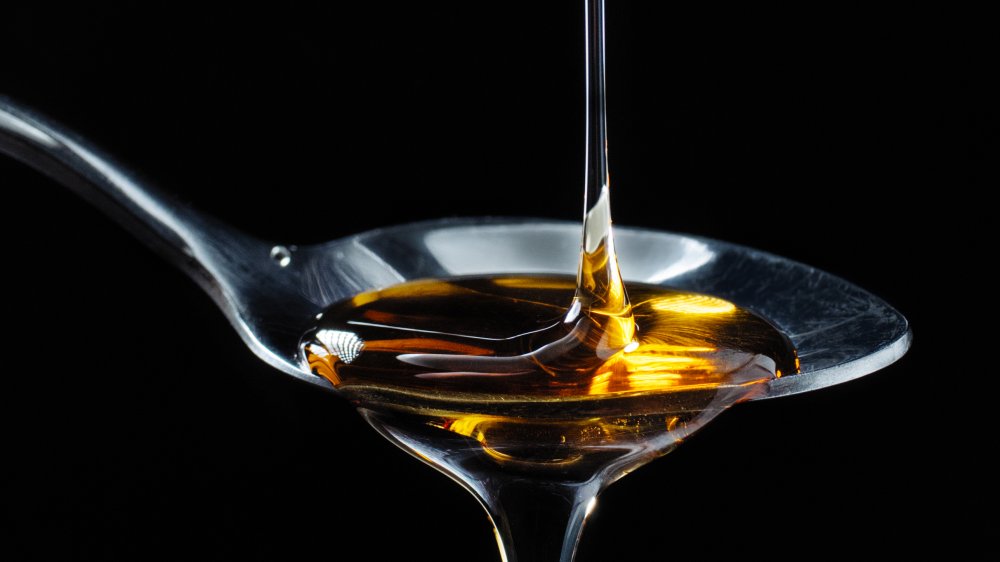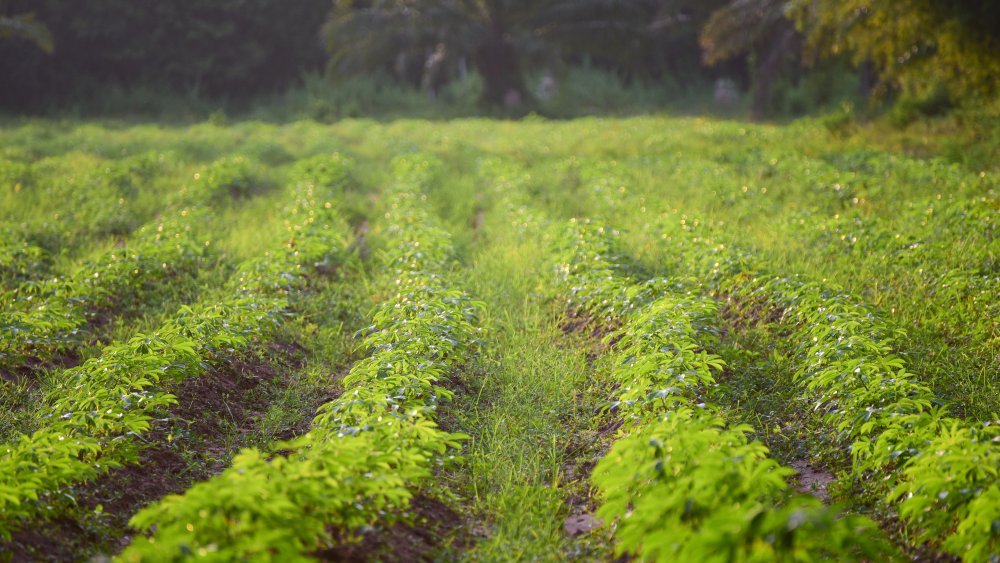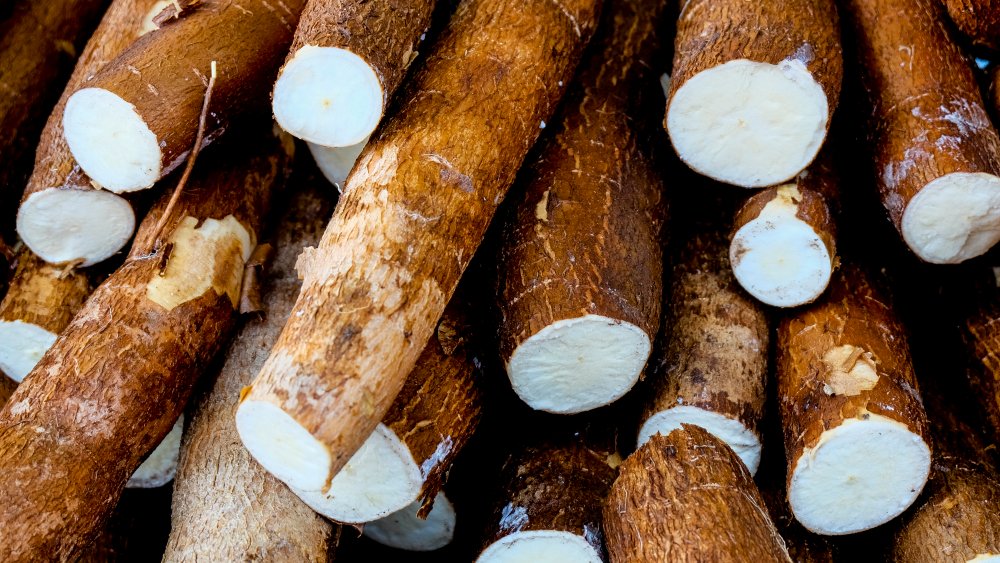What Is Tapioca Syrup Actually Made Of?
As the hunt for healthier sweeteners continues, tapioca syrup has gained in popularity as a replacement for both highly-processed options, like sugar and corn syrup, as well as more natural alternatives, such as honey and maple syrup (via Sweet Additions). According to Healthy Beginnings, tapioca syrup is also highly versatile, used to add "sweetness, binding or texture" to everything from beverages to baked goods, processed meats to pie fillings, and sauces to soups.
It's even approved for gluten-free and grain-free diets caused by allergies or intolerances (via Healthline), contains fewer calories and carbs than sugar — and, if organic, can offer the added benefit of no pesticides or genetically modified elements (via Shafi Gluco Chem). But what exactly is tapioca syrup, anyway?
The making of tapioca syrup
Tapioca syrup starts with the cassava (also called yucca root or manioc). Cassava is a tuber that is native to the South American tropics, but also grown in Asia and Africa; has been used for thousands of years; and is actually the world's third-largest human source of carbohydrates.
According to Nutritional Outlook, the tuber is harvested, ground to create a starch, and then made into syrup through the processes of acid hydrolysis or enzymes (the processing time determines its ultimate level of sweetness). Alternatively, cassava can be ground and liquid-extracted to create a powder, which can then be transformed into those gooey pearls that are a staple of bubble teas.
The benefits (and possible dangers) of tapioca syrup
According to Shafi Gluco Chem, tapioca syrup can replace sugar as a healthier alternative; one-quarter cup of the syrup packs 42 grams of carbs (vs. 50 in sugar) and 168 calories (vs. 194). Healthy Beginnings even reports that it is believed to have beneficial effects on the digestion process, and is free of odor or flavors (via Sweet Additions).
However, as Healthline notes, cassava does contain a "toxic compound," called linamarin, that could cause cyanide poisoning if not properly processed — thankfully, though, commercial varieties are safe. Also, those with latex allergies may experience reactions to cassava consumption. Finally, though tapioca syrup may be preferred by many as a more natural alternative to sugar or corn syrup, consumers would probably be wise to avoid indulging too much in any sweetener, regardless of its source.


